Filter by

Molecular and Cellular Mechanobiology
This book will cover the cutting-edge developments in molecular and cellular mechanobiology to date. Readers will have a clear understanding of mechanobiology at the molecular and cellular levels, encompassing the mechanosensors, transducers, and transcription. An integrative approach across different scales from molecular sensing to mechanotransduction and gene modulation for physiological reg…
- Edition
- 1
- ISBN/ISSN
- 978-1-4939-5615-9
- Collation
- XIII, 302
- Series Title
- Physiology in Health and Disease
- Call Number
- -

Molecular and Cellular Biology of Platelet Formation
This book gives a comprehensive insight into platelet biogenesis, platelet signal transduction, involvement of platelets in disease, the use of diverse animal models for platelet research and future perspectives in regard to platelet production and gene therapy. Being written by international experts, the book is a concise state-of-the art work in the field of platelet biogenesis, biology and r…
- Edition
- 1
- ISBN/ISSN
- 978-3-319-39560-9
- Collation
- X, 460
- Series Title
- -
- Call Number
- -
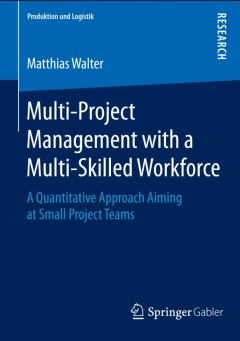
Multi-Project Management with a Multi-Skilled Workforce
This book covers three fundamental problems at the interface of multi-project management and human resource management: the selection of projects, the composition of small project teams, and workload leveling. Matthias Walter proposes optimization models and solution methods for these problems, assuming multi-skilled workers with heterogeneous skill levels. For the first time, the author presen…
- Edition
- 1
- ISBN/ISSN
- 1431-6846
- Collation
- XXIII, 301
- Series Title
- Produktion und Logistik
- Call Number
- -
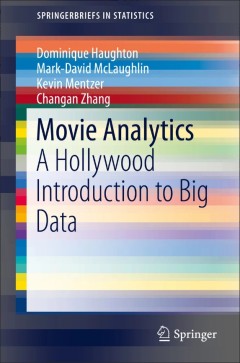
Movie Analytics:A Hollywood Introduction to Big Data
Movies will never be the same after you learn how to analyze movie data, including key data mining, text mining and social network analytics concepts. These techniques may then be used in endless other contexts. In the movie application, this topic opens a lively discussion on the current developments in big data from a data science perspective. This book is geared to applied researchers and pr…
- Edition
- 1
- ISBN/ISSN
- 978-3-319-09425-0
- Collation
- VIII, 64
- Series Title
- SpringerBriefs in Statistics
- Call Number
- -

Morton Deutsch: Major Texts on Peace Psychology
Commemorating Morton Deutsch’s 95th birthday, this book presents ten major texts by this highly respected social psychologist on war and peace. This second volume presents Deutsch in his role as a leading social science activist on issues of war and peace – writing papers, making speeches and participating in demonstrations. After serving in the U.S. Air Force during World War II and being …
- Edition
- 1
- ISBN/ISSN
- 978-3-319-15442-8
- Collation
- XIII, 167
- Series Title
- SpringerBriefs on Pioneers in Science and Practice
- Call Number
- -
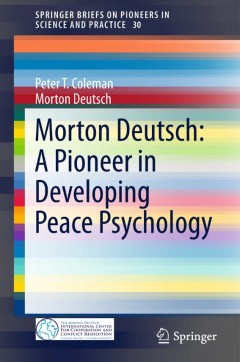
Morton Deutsch: A Pioneer in Developing Peace Psychology
Commemorating Morton Deutsch’s 95th birthday, this book presents ten major texts by this highly respected social psychologist on war and peace. This first volume presents Deutsch in his role as a leading social science activist on issues of war and peace – writing papers, making speeches and participating in demonstrations. After serving in the U.S. Air Force during World War II and being a…
- Edition
- 1
- ISBN/ISSN
- 978-3-319-15439-8
- Collation
- XVI, 139
- Series Title
- SpringerBriefs on Pioneers in Science and Practice
- Call Number
- -

Emerging Therapies in Neurorehabilitation II
This book reports on the latest technological and clinical advances in the field of neurorehabilitation. It is, however, much more than a conventional survey of the state-of-the-art in neurorehabilitation technologies and therapies. It was written on the basis of a week of lively discussions between PhD students and leading research experts during the Summer School on Neurorehabilitation (SSNR2…
- Edition
- -
- ISBN/ISSN
- 978-3-319-24901-8
- Collation
- 19 b/w illustrations, 36 illustrations in colour
- Series Title
- -
- Call Number
- -
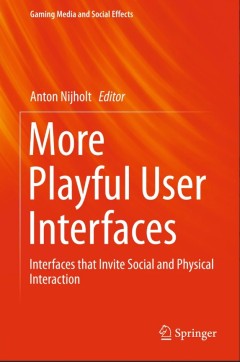
More Playful User Interfaces
This book covers the latest advances in playful user interfaces – interfaces that invite social and physical interaction. These new developments include the use of audio, visual, tactile and physiological sensors to monitor, provide feedback and anticipate the behavior of human users. The decreasing cost of sensor and actuator technology makes it possible to integrate physical behavior inform…
- Edition
- 1
- ISBN/ISSN
- 978-981-287-546-4
- Collation
- -
- Series Title
- Gaming Media and Social Effects
- Call Number
- -

The Tagore-Gandhi Debate on Matters of Truth and Untruth
Between 1915 and 1941, Tagore (1861-1941) and Gandhi (1869-1948) differed and argued about many things of personal, national, and international significance---satyagraha, non-cooperation, the boycott and burning of foreign cloth, the efficacy of fasting as a means of resistance and Gandhi’s mantra connecting “swaraj” and “charkha”. The author tracks the development of this dialogue an…
- Edition
- -
- ISBN/ISSN
- 978-81-322-2116-6
- Collation
- -
- Series Title
- -
- Call Number
- -
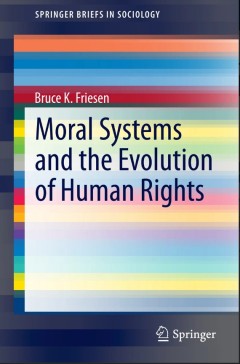
Moral Systems and the Evolution of Human Rights
This volume offers a comprehensible account of the development and evolution of moral systems. It seeks to answer the following questions: If morals are eternal and unchanging, why have the world’s dominant religious moral systems been around for no more than a mere six thousand of the two hundred thousand years of modern human existence? What explains the many and varied moral systems acro…
- Edition
- 1
- ISBN/ISSN
- 978-94-017-9550-0
- Collation
- XVIII, 76
- Series Title
- SpringerBriefs in Sociology
- Call Number
- -
 Computer Science, Information & General Works
Computer Science, Information & General Works  Philosophy & Psychology
Philosophy & Psychology  Religion
Religion  Social Sciences
Social Sciences  Language
Language  Pure Science
Pure Science  Applied Sciences
Applied Sciences  Art & Recreation
Art & Recreation  Literature
Literature  History & Geography
History & Geography